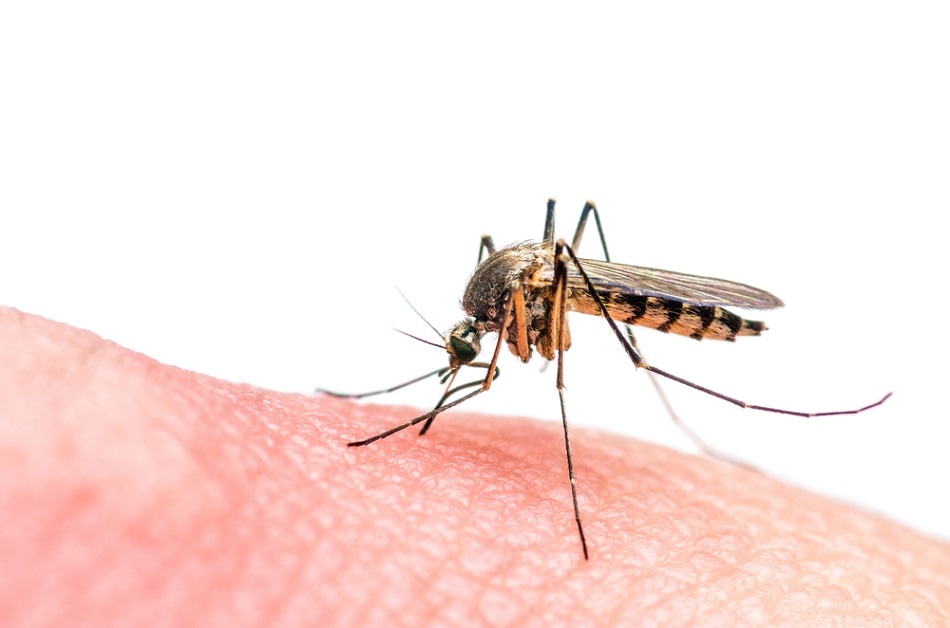 nechaevkon / Shutterstock
nechaevkon / Shutterstock
Recent developments and potential applications for graphene include advancements in battery technology, supercomputers, solar panels, while the material even allows for faster DNA Sequencing. Now, researchers from Brown University have discovered that graphene could be used be as an innovative chemical-free alternative for mosquito bite prevention. This opens the potentiality that graphene could help minimize the spread of infectious diseases such as malaria, dengue, and zika as well as many more.
“Mosquitoes are important vectors for disease all over the world, and there’s a lot of interest in non-chemical mosquito bite protection,” said Robert Hurt, a professor in Brown’s School of Engineering.
We had been working on fabrics that incorporate graphene as a barrier against toxic chemicals, and we started thinking about what else the approach might be good for. We thought maybe graphene could provide mosquito bite protection as well.
Robert Hurt, Professor, Brown's School of Engineering
For the study, researchers managed to convince a group of participants that were willing to endure a fair few mosquito bites. The courageous candidates placed their arms into an enclosure specifically designed for the project with some exposing a small patch of bare or cheesecloth-covered skin to the mosquitos while others had their skin patches covered in the graphene oxide (GO) based film. The insects were bred in the laboratory to ensure the experiment was controlled and the mosquitos were disease-free.
The results showed that while bare or cheesecloth-covered skin was bitten several times, the skin covered by the graphene films did not receive any bites whatsoever. The mosquito’s behavior radically altered towards the skin covered by the graphene films.
“With the graphene, the mosquitoes weren’t even landing on the skin patch — they just didn’t seem to care,” said Cintia Castillho, a Ph.D. student at Brown.
We had assumed that graphene would be a physical barrier to biting through puncture resistance, but when we saw these experiments, we started to think that it was also a chemical barrier that prevents mosquitoes from sensing that someone is there.
Cintia Castillho, Ph.D. student, Brown's School of Engineering
Thus, to further determine the idea that the material may be a chemical barrier, the researchers placed human sweat onto the graphene film’s exterior with the chemical. The mosquitoes were then attracted to the film in much the same way they were to bare skin.
Therefore, the conducted research demonstrates that graphene oxide film has an ability to disrupt the mosquito’s capacity to sense skin and sweat. In addition to this, the mosquito’s bite is unable to penetrate the multi-layered nanomaterial due to its strength. However, this only applies when the material is dry as the study showed that the material is vulnerable to puncture when wet after running a series of further tests and computer simulations. Research found that reduced oxygen content (called rGO) graphene oxide works wet or dry but lacks the breathability of graphene oxide.
“GO is breathable, meaning you can sweat through it, while rGO isn’t,” said Professor Hurt. “So, our preferred embodiment of this technology would be to find a way to stabilize GO mechanically, so that is remains strong when wet. This next step would give us the full benefits of breathability and bite protection.”
Until this study, insect-bite protection was an unexplored function of graphene-based materials. Funded by the National Institutes of Environmental Health Sciences (NIEHS), the research was published in the journal Proceedings of the National Academy of Sciences.
Heather Henry Ph.D., a health scientist administrator with NIEHS stated, “These findings could lead to new protective methods against mosquitos, without the environmental or human health effects of other chemical-based repellants.”
Graphene’s unique strength and flexibility means it can be used as a single layer or stacked together, making it ideal for being incorporated into fabrics which could then be used for mosquito preventative clothing and lower the risk and spread of infectious diseases.
This innovation using graphene to repel mosquitos could help reduce the burden of ill health associated with a number of infectious diseases and might reduce the need for pesticides to eradicate the mosquitos that carry them … New material such as this one should be assessed in the field to determine full public health implications.
William Suk Ph.D., Director of the NIEHS Superfund Research Program
Disclaimer: The views expressed here are those of the author expressed in their private capacity and do not necessarily represent the views of AZoM.com Limited T/A AZoNetwork the owner and operator of this website. This disclaimer forms part of the Terms and conditions of use of this website.